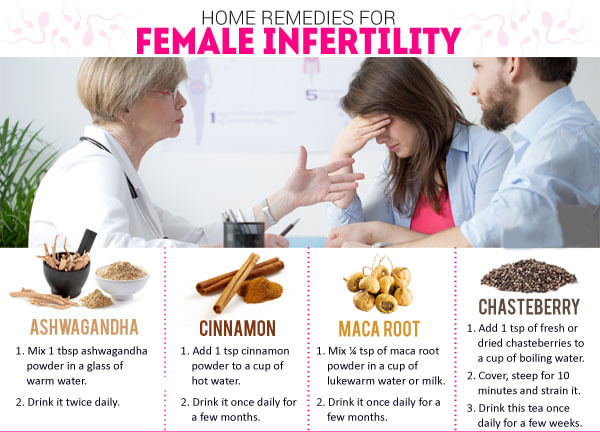Infertility is a medical condition that is described as the inability of a couple to conceive after one year of unprotected intercourse. For women of the age above 35 years, the recommended period is six months. Infertility is defined as the inability of a couple to conceive or, in other words, the failure of a woman to become pregnant after a year of unprotected sexual intercourse; it could be due to hormonal disorders, anatomical abnormalities, or other medical conditions. Thankfully, there are numerous solutions to infertility given the current development in the field of medicine especially for women.
Lifestyle Modifications
It is therefore important that before going for medicines, one has to adhere to some general tips that can enhance fertility. These modifications include:
- Maintaining a Healthy Weight: Underweight women and overweight women also have a problem with hormonal changes that lead to ovulation.
- Balanced Diet: There are many ways through which nutrition can intervene in the improvement of reproductive health.
- Regular Exercise: Moderate exercise is useful as it assists in preventing weight gain and also in managing stress.
- Avoiding Alcohol and Tobacco: All the substances are known to have an adverse effect on fertility.
For more lifestyle modifications consult a gynecologist in lahore.
Medications
Several medications can be used to induce ovulation or to correct hormonal problems which are a cause of infertility. Accessible supplements such as inositol can also be helpful in mitigating and managing symptoms of PCOS.
Clomiphene Citrate
Clomiphene citrate (Clomid) is a medicine that is administered orally and is used to bring about ovulation by releasing hormones needed for ovulation. This form of medication is usually recommended for women with ovulatory problems.
Gonadotropins
Gonadotropins are hormones that are administered through injection and they help in the development of several follicles in the ovaries. They are usually prescribed when Clomid does not work or for women who are using ARTs such as IVF.
Metformin
Metformin is often prescribed to women with PCOS, to improve insulin sensitivity. As a result of enhancing the insulin sensitivity, Metformin can bring back normal menstrual cycles and ovulation.
Surgical Interventions
Sometimes, the physical abnormalities or blockage that may be causing the infertility may need the intervention of surgery.
Laparoscopy
Laparoscopy is a procedure in which a small incision is made in the abdomen in order to treat diseases such as endometriosis, pelvic adhesions and ovarian cysts. Thus, the solution of these problems can enhance the possibilities of conception during laparoscopy.
Hysteroscopy
Hysteroscopy is another outpatient procedure that enables the physicians to diagnose and treat conditions within the uterine cavity including polyps, fibroids, and adhesions.
Assisted Reproductive Technologies (ART)
ART involves numerous methodologies that assist in the conception of a child. These methods are usually used when other interventions have not been effective in helping the patient.
In Vitro Fertilization (IVF)
IVF is among the most popular ART techniques known all over the world. It entails the removal of eggs from the woman’s ovaries, the sperm from the man is introduced to the eggs in a laboratory and the resulting embryos are then inserted into the woman’s uterus. IVF is usually advised for women with tubal factor, severe endometriosis or no obvious cause of infertility.
Intracytoplasmic Sperm Injection (ICSI)
ICSI is a type of IVF in which one sperm is inserted into an egg manually. This method is applied where the man is the one with fertility problems such as low sperm count or low sperm mobility.
Intrauterine Insemination (IUI)
IUI entails placing the sperm which has been washed and concentrated into the uterus at the time of ovulation. This procedure is frequently applied in cases of mild male factor infertility, cervical mucus hostility, or idiopathic infertility.
Egg Donation and Surrogacy
In fact, for women with ovarian failure or severe complications of the uterus, the options are egg donation and surrogacy.
Egg Donation
Egg donation is a technique where the eggs are retrieved from a donor and then the partner’s or the donor’s sperm is used to fertilize the eggs through IVF. Thus, the created embryos are inserted into the recipient’s uterus.
Surrogacy
Surrogacy is another type that entails that another woman holds the pregnancy until delivery. Such type of surrogacy where the surrogate has no genetic relation with the child is done through IVF.
Conclusion
Infertility is a difficult process but there are many ways through which women can conceive and become mothers. It goes from making changes in one’s lifestyle, taking certain medications, to surgeries and even the use of high tech reproduction systems to help couples have babies. It is always wise to seek the services of a gynecologist in Karachi who can help in offering advice and counseling on how to go through this process.


